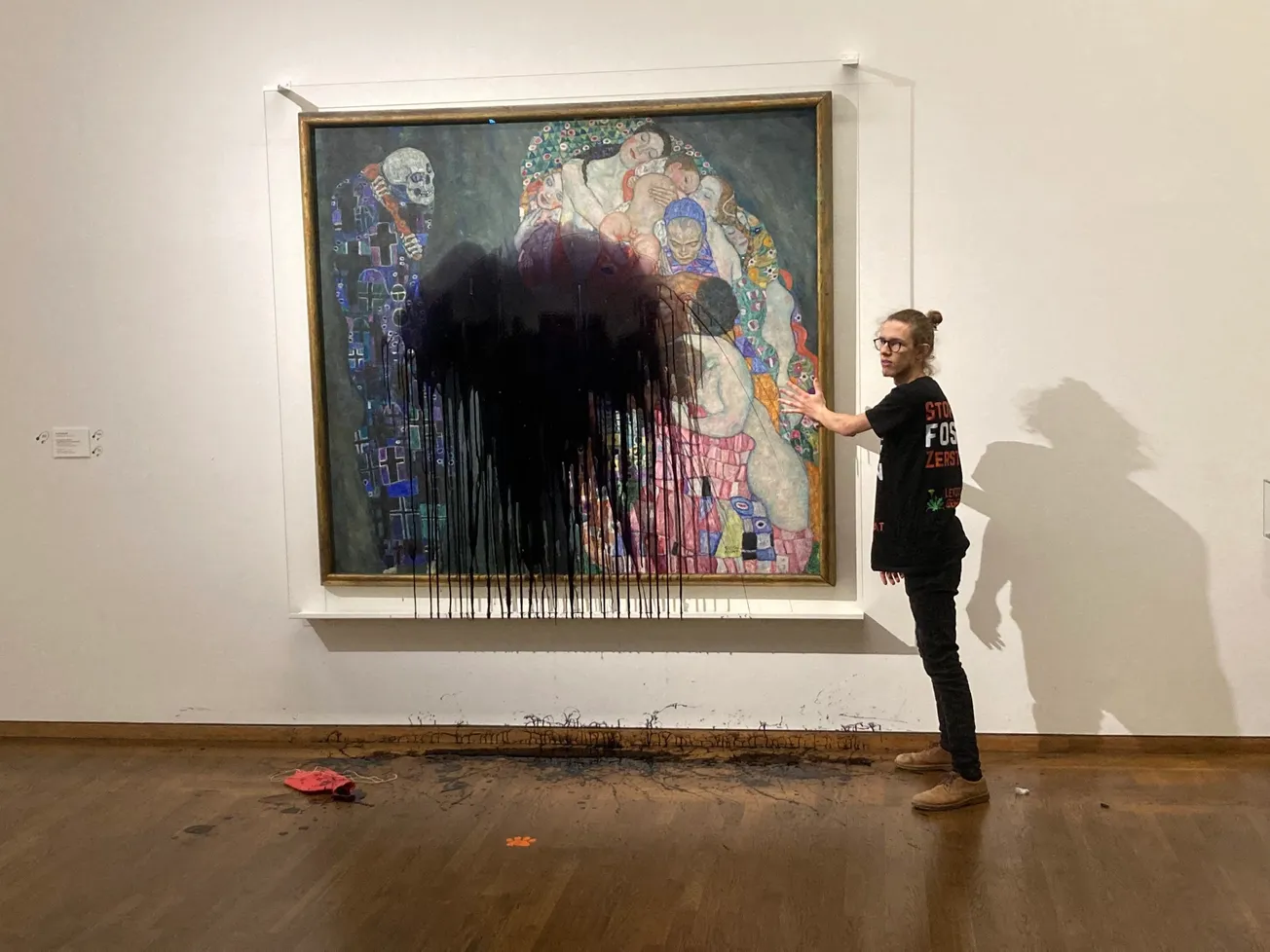Table of Contents
2022 saw the rise of an alarming trend. Progressive activists from around the world joined a long line of radical groups throughout history by targeting priceless works of art in an attempt to further their cause. As she glued herself to the wall of a gallery, one protester shouted: “What is worth more—art or life…? Are you more concerned with the protection of a painting, or the protection of our planet and people?” Being that none of the works were irrevocably damaged, was this merely a harmless, and effective, publicity stunt? Or a harbinger of something more concerning?
That these activists are willing to go to such extremes should come as no surprise. Since at least the early 2000s, Progressive educators, news and entertainment media have inundated young people with the idea that humans are a cancer feeding on Mother Earth. One hundred and fifty years ago, as the vast majority of us struggled to eke out a meager living from a starvation and disease-riddled existence, this idea would have seemed morbidly insane. Ironically, it is only thanks to the massive improvements in standard of living, infant mortality, and life expectancy brought about by the very Industrial Revolution that many Progressives so vehemently criticize that the notion of nature as benign has turned from patently ridiculous to intellectually en vogue.
Of course, this increase in our standard of living came at a cost. The same Enlightenment philosophies that birthed the scientific method (which in turn fomented the development of technology that precipitated the Industrial Revolution), led to such a rapid decline in religious faith that in 1880 Friedrich Nietzsche famously declared: “God is dead.” In his book Ecce Homo, Nietzsche also warned of how that God-shaped hole in the western psyche would be filled: “The notion of politics will then completely dissolve into a spiritual war… there will be wars such as there have never yet been on earth.” The history of the twentieth century—two World Wars, a Communism in Russia and China that resulted in the loss of over 100 million lives, and myriad smaller skirmishes too numerous to enumerate here—suggests that Nietzsche was right.
Despite the Marxist misconception that religion is a “social construct” designed to oppress lower classes, in reality (according to moral psychologist Jonathan Haidt), religion co-evolved with human societies as a way to maintain social cohesion. When numbers grew too large for familial bonds to hold people accountable, we needed to promote cooperation between strangers by developing ways to protect against “free riders”—those who game the system without doing their fair share. That religion developed to help “bind and blind” people to differences that would otherwise inhibit cooperation is a central theme of Haidt’s best-selling book The Righteous Mind.
Thus, as faith in Christianity declined in the west, philosopher Charles Taylor argues that what we’ve seen is not the disappearance of religious feeling, but rather its adaptation into novel forms. An adaptation as efficacious and longstanding as religion is not likely to simply disappear within a couple of generations. In fact, society and religion are so thoroughly intertwined that it seems our brains are actually hardwired for it. Rather than losing our capacity or desire for religion, what is far more likely is that we’ve merely transferred it into fanaticism for sports teams, movie franchises or—as Nietzsche warned—political ideologies. Thus twentieth century Marxism has given way to twenty-first century Progressivism (an amalgam of post-modern neo-Marxism, that includes feminist/queer theory, environmental extremism, woke anti-racism, etc.), our latest attempts to fill the God-shaped hole.
As we have argued here at the Review, contemporary Progressive ideology shares many of the basic tenets of organized religion. 1. Original Sin (Colonialism, Imperialism, historic oppression, environmental exploitation) for which one must seek redemption by recognizing one’s privilege. 2. Scripture—anything written by Karl Marx, Jacques Derrida, bell hooks, Michel Foucault, Ta-Nehisi Coates, Ibram X. Kendi, Howard Zinn, Noam Chomsky, or their acolytes. 3. Excommunication—being “canceled.” 4. Exegesis—you must read the books and “do the work” to understand oppression, but you will never be able to truly understand the “lived experience” of people of color and if you think you can, you’re “problematic” (read: blasphemous). James Wood argues that modern Progressivism is actually a form of post-Protestant Neopaganism. The real problem, however, is that although Progressivism might share many of the basic tenets of a religion, it offers virtually none of the benefits.
Perhaps the biggest problem inherent in political ideology masquerading as a religion is that it offers nothing in the way of transcendence. Equality, like survival, is not a meaningful (or even achievable) goal in and of itself. Survival to what end, one might ask? What would a perfectly egalitarian society look like? And what happens once it is achieved? Authors like Aldous Huxley, Ray Bradbury, George Orwell and Kurt Vonnegut offer powerful examples of the monumental efforts, and despotic authoritarian regimes that would be necessary to implement and maintain it.
Thus, the issue with radical Progressivism is that, as environmentalist Michael Shellenberger notes, it “preaches fear without love, and guilt without redemption.” The kind of thinking that Progressive climate activists engage in is rooted in nihilism and hatred for one’s political enemies. For how can one not hate those who believe that “art is worth more than life?” There are very few acts that can’t be justified by that line of reasoning. Today, it is defacing priceless works of art, but should the public not bend to the will of these zealots, what will it be tomorrow? One shudders to think, for in their fanatic attempts to “save” human lives they have already begun targeting one of the very things that makes life worth living.









